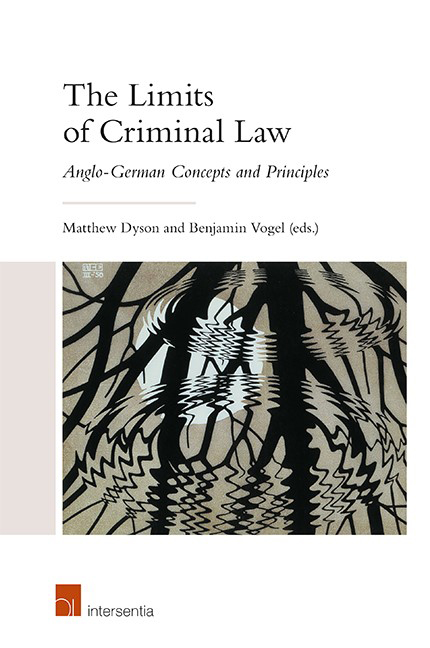Book contents
- Frontmatter
- Preface
- Contents
- List of Cases
- List of Abbreviations
- List of Contributors
- Chapter 1 Introduction
- PART I CORE PRINCIPLES OF CRIMINAL LAW
- PART II CRIME AND TORT
- PART III CRIME AND MEDICAL
- PART IV CRIME AND REGULATION
- PART V ADMINISTRATIVE SANCTIONS
- PART VI ALTERNATIVE ENFORCEMENT
- PART VII COUNTER-TERRORISM
- PART VIII CRIME AND INTELLIGENCE
- PART IX CONCLUSION
- Index
- About the Editors
Chapter 8 - Medicine and the Criminal Law in England and Wales
Published online by Cambridge University Press: 11 February 2021
- Frontmatter
- Preface
- Contents
- List of Cases
- List of Abbreviations
- List of Contributors
- Chapter 1 Introduction
- PART I CORE PRINCIPLES OF CRIMINAL LAW
- PART II CRIME AND TORT
- PART III CRIME AND MEDICAL
- PART IV CRIME AND REGULATION
- PART V ADMINISTRATIVE SANCTIONS
- PART VI ALTERNATIVE ENFORCEMENT
- PART VII COUNTER-TERRORISM
- PART VIII CRIME AND INTELLIGENCE
- PART IX CONCLUSION
- Index
- About the Editors
Summary
INTRODUCTION
Doctors engage with death and injury much of their working lives. Medicine commonly involves cutting into people, administering powerful poisons, and touching intimate parts of the body when people are unconscious: acts which in any other context would amount to serious criminal offences. Yet it is very rare for a doctor acting in their professional capacity to have committed a criminal offence. That is not surprising. On nearly every occasion the professional activities of doctors are well motivated, seeking to promote the best interests of the patients. Patients agree, indeed desire, that doctors do remarkably invasive acts, displaying considerable trust in doctors. We also know that medical professionals are faced with enormous pressures in their work, in terms of time, workload and emotional resources. In emergency situations they must, terrifyingly, make life and death decisions in seconds. In the face of limited resources they may quite literally have to choose who to live and who to die. To impose the fear of a prosecution over what is already a high-pressured situation seems almost cruel. It is not surprising then that it is rare to find criminal courts determining whether doctors have committed criminal offences.
That is not to say that criminal law has no role to play in the regulation of medical practice. Indeed, it has an important one. In particular it has a role in ensuring that patients’ rights of autonomy and bodily integrity are protected. This chapter will start with a general exploration of the role criminal law plays in medical law. Two issues in particular will be focused on. The first is the concept of consent and the second is the scope of what English lawyers describe as the ‘medical exception’. The law on abortion and euthanasia will be used to provide examples of how these principles are applied in practice. The chapter will conclude with a justification for the approach of the current law.
OVERVIEW OF THE LAW
A starting point for the criminal law is that a healthcare professional who intentionally or recklessly touches someone without their consent is committing the offence of battery.
- Type
- Chapter
- Information
- The Limits of Criminal LawAnglo-German Concepts and Principles, pp. 149 - 172Publisher: IntersentiaPrint publication year: 2020

